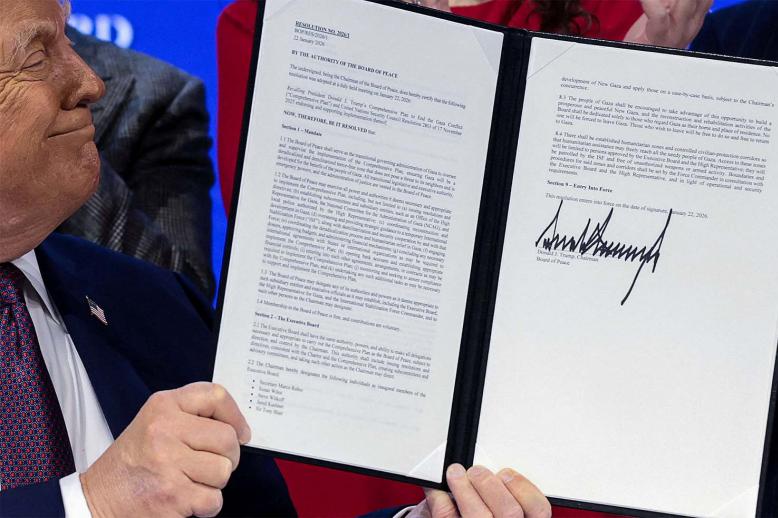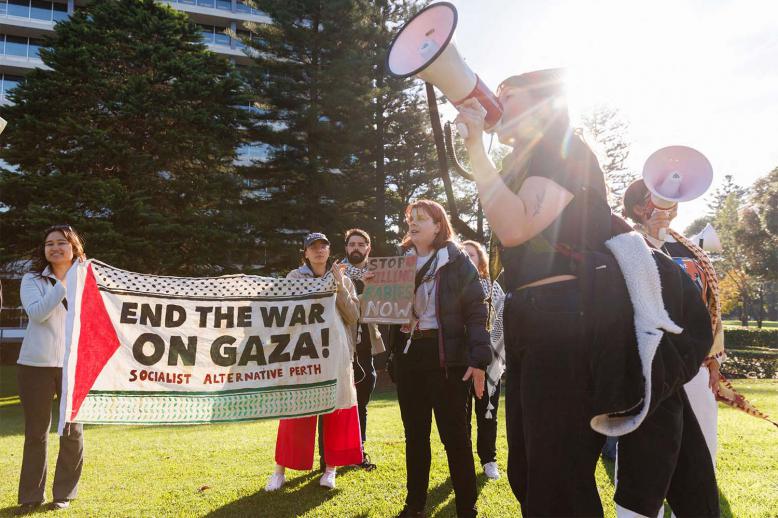Closing the security vacuum in northern Iraq
Security in the disputed areas has recently witnessed a lot of deterioration. Daesh (the Arabic acronym of the Islamic State) managed to assassinate several innocent inhabitants and soldiers there. Accordingly, different Iraqi and foreign observers are presently warning of this matter and its futuristic consequences. Therefore, there is now a call for having a new security model be applied there so that Daesh cannot re-emerge again. Many experts consider this as a new challenge for al-kadhimi's government.
Geographically this area is very important for many reasons. It forms a strip extending from the Iraqi-Syrian border to the Iraqi-Iranian border. This area, which is 1000 km long and approximately 37,000 kilometers in size, has many arable lands. Kirkuk, an oil-rich province, is located in the heart of this region. Moreover, it forms a land bridge linking between the Kurdistan region of Iraq (KRI) and the other Arab parts of this country.
In addition to Kirkuk, this region also includes other vital provinces: Nineveh, Salah Al din, Diyala, and Wasit. Different groups of Iraqi people have been living there for centuries. The Kurdish side permanently declares that 1.2 million Kurdish citizens are now living in those parts of Iraq. Arabs in return affirm that today they are the majority in this region and no power can force them to leave it for the others. Some of the Arab tribes have many times reiterated they will sacrifice their souls for the sake of Kirkuk City, and they will prevent the Kurds from annexing it into their autonomous region.
The geopolitical situation in this area has changed dramatically since September 2017. Kurdish fighters (Peshmerga) were spreading in many parts of this territorial sphere. When the Kurds wanted to apply their failed referendum of Independence, former prime minister Haidar Al Abadi, took the opportunity and managed to pull the Kurdish Fighters out of Kirkuk and the other parts of the disputed area. The popular mobilization forces (PMF) along with the other Iraqi factions are guarding this region. However, there is a vacuum between them and the Kurdish Fighters who have since then surrendered to the KRI.
Daesh members have succeeded in exploiting this for their advantage. Today, their sleeper cells are somehow active and put the security of this area at risk. To tackle this problem, Iraqi Prime Minister Mustafa al-kadhimi some days ago had a meeting with the security leaders from the Iraqi army and the Peshmerga. He asserted that a joint operations room must be set up to consolidate their military cooperation and coordination. Yet, the date of doing this has not been fixed. Hence, Kurds fear that the government might renege on that deal, especially that this government will not stay longer than five months in power.
The Kurds say that PMF refuses the returns of the Kurdish Peshmerga to the conflicted areas. They put pressure on the Prime Minister to not activate the joint room of military operations. Furthermore, many Shiite leaders claim that, according to the constitution, the Iraqi federal army and the PMF are the only troops that must be present in this area, especially in Kirkuk. This will prevent the Kurdish Fighters from participating in protecting and securing this area. Consequently, the Kurdish leaders argue that the security vacuum in this region will continue.
Meanwhile, there is an extensive talk about the outputs of the latest American-Iraqi strategic dialogue. Accordingly, it is supposed that the American soldiers will be withdrawn from Iraq as the Biden administration is now planning for. This will cast a shadow on the security of disputed areas. Some Iraqi figures are still convinced that Iraqi forces are in need of American assistance to contain the threat of terrorism. They fear that Iraqi security forces are not ready enough for this phase. They note that conflicted areas might be the arena from which Daesh can re-impose its hegemony on the future of Iraq and KRI. Till now there is no real discussion about this scenario.
Securing this area requires a kind of political consensus between the Iraqi parties. Yet, there is no signal that we will see such a thing. The Kurds from their side believe there is no trust in the federal government in Baghdad to settle the situation in this area fairly. They believe that there is a geopolitical game presently taking a place there. It is supported by a regional power that doesn’t permit the Kurds to return to this area officially.
On the opposite side, many Shiite politicians acknowledge that there is no trust in the Kurdish fighters and leaders. They think that the Kurds want to manipulate the security question in this area to turn back the clock. They ascertain that the Kurds are trying to control this area so that they could, when possible, declare their separation from Iraq.
The lack of confidence between Baghdad and Erbil, the chaos of the military decision in the disputed areas, and the anticipated departure of American forces means that this disputed area will stay troubled. If we want to secure this area from any futuristic threat, we have, as Iraqis, to reconsider building the trust between the most powerful military institutions we have.
This is the only way through which we can restore the positive relation between society and the government. Whether this is done by Baghdad alone or through its cooperation with Erbil, turning this area into a safe zone is highly vital for Iraq future and unity.
Diyari Salih is an Iraqi academic working at al-Mustansiriyah university. He holds a Ph.D. in Political Geography from the University of Baghdad and a Post-Doctorate in International Relations from the University of Warsaw. His research focuses on geopolitical issues in Iraq.







